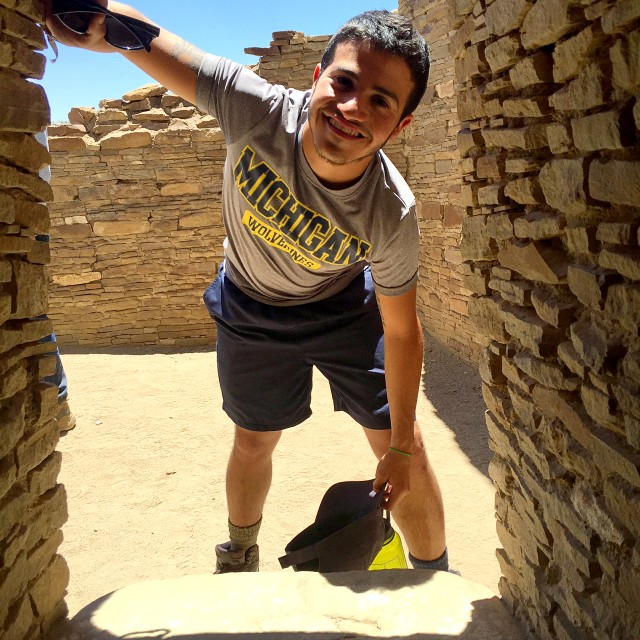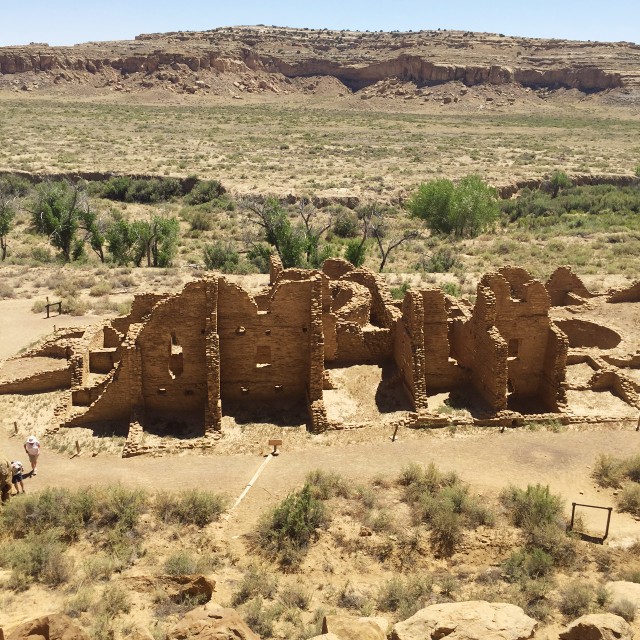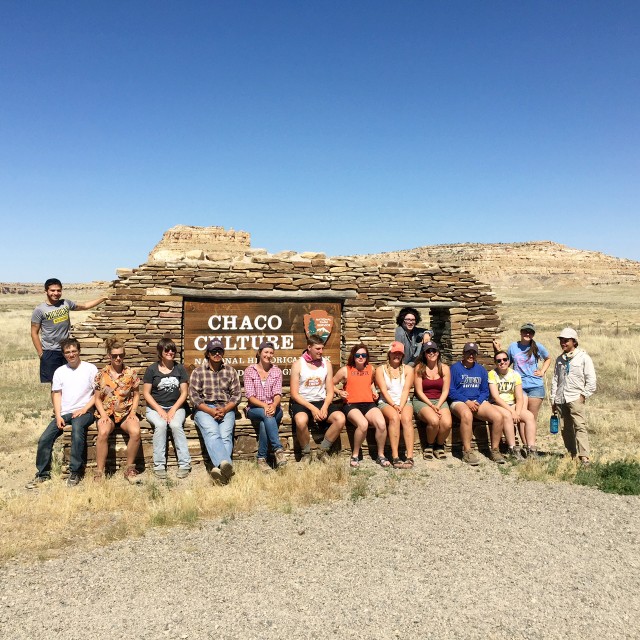- Home
- >
- Preservation Archaeology Blog
- >
- It’s Complex
Daniel Agudelo, University of Michigan
(Posted July 13, 2016)—On Saturday June 18 and Sunday June 19 we had the awesome pleasure of visiting Chaco Canyon and learning about Chacoan culture. Getting to Chaco was a trip in itself—over 10 miles of unpaved, hilly, and bumpy roads!
I am so glad that this location as well as the culture surrounding it has been preserved in the Chaco Culture National Historical Park because it is an integral part of our American history. Even if it does not represent my specific heritage, it represents someone’s heritage—thus representing the face of America, which in turn represents all American citizens. This makes me proud to be an American citizen, because the National Park Service preserves all kinds of stories and histories. The fact that we are able to roam around pueblos such as Pueblo Bonito and Casa Rinconada 1,000 years after their builders did and see how they lived is very special.

From A.D. 850 to 1200, Chaco Canyon was the epicenter of a political, ceremonial, and trade network that encompassed a vast area of the Southwest. The Chacoans were known for their great houses and great kivas. I was so impressed by the Chacoan architecture and the stories of how the great house builders lived; it made me think on a larger scale about the influence they had in the land and wondered why we don’t think of them as a complex society. A heated debate that lingers in this area concerns whether the Chacoans can be characterized as a complex society and what that term implies.
When we talk about social complexity, we immediately label some societies as complex and some not. Let’s not forget that these subconscious distinctions come with our assumption that modern Western society is at the top of an evolutionary ladder and that other societies that did not share its characteristics are not labeled “complex.” This kind of evolutionary determinism has mostly been discarded; however, definitions of “complexity” still reference this early thinking. I find this assumption problematic because people fail to realize that ritual behavior, religion, kinship relationships, leadership capabilities, and extensive trade networks can also be considered complex. The traditional, reductionist representation of complexity needs to be re-evaluated, and we should start approaching “complexity” in its many forms and dimensions.

The Santa Fe Institute (a multidisciplinary center dedicated to the research on complexity) held a workshop on “Organization and Evolution of Southwestern Prehistoric Societies” with an accompanying conference volume published in 1990. By the end of the workshop, the multidisciplinary team agreed that complexity was not easy to define because of the multitude of fields that deal with the word “complex.” In an anthropological context, the term “complex” can have two different definitions. The first is a general sense that “complexity” refers to societies that are hierarchically organized, usually with attributes different than those of egalitarian societies, such as bands or tribes. The second definition of complexity states that a complex society includes specialists who fulfill certain roles in that society.
Yet the connotations of these categories constrain our thinking about these societies and diminish their achievements. For example, most large cities were founded on or near a water source, and the climate in parts of Europe in my opinion is much easier to deal with than the arid Southwest, yet Ancestral Pueblo people flourished here.
Categorizing societies as “complex” or not is especially difficult when examining past societies that may only be assessed based on material remains left behind. Of course we will not all agree and will have different ways of approaching complexity, so we should compare approaches and share the knowledge we gain from research to open a dialogue that focuses not just on critiquing past approaches, but that also offers examples of how aspects of social complexity might otherwise be considered.

Explore the News
Related to This
-
Location Chaco Culture National Histori...
-
Post Bringing Chaco Home